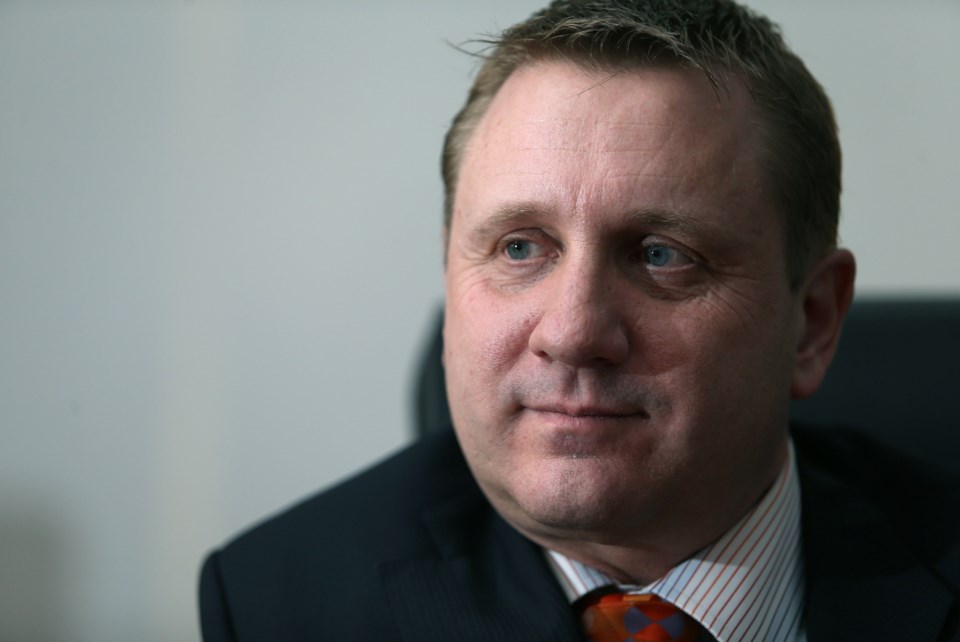Suspended Victoria Police Chief Frank Elsner is asking the courts to declare that sections of B.C.’s Police Act violate the Charter of Rights and Freedoms’ search and seizure provisions and are therefore not enforceable.
Under the act, independent investigators with the Office of the Police Complaint Commissioner are not required to obtain warrants to search police premises, equipment and records when looking into allegations of misconduct at municipal departments.
Those provisions violate Section 8 of the charter, because they relate to matters to which there is a high expectation of privacy, Elsner says. Section 8 protects against unreasonable search and seizure.
Elsner is the subject of three external investigations by the Office of the Police Complaint Commissioner. The first, ordered in December, was prompted by allegations that Elsner sent inappropriate Twitter messages to the wife of a subordinate officer.
In an amended petition filed May 31 in B.C. Supreme Court in Vancouver, Elsner says the messages he exchanged with the woman “were obtained through an unlawful and unauthorized search” of his Twitter account.
“At all material times, Chief Elsner had a reasonable expectation of privacy over the Twitter Account and or the Private Messages,” the petition says.
Elsner’s private messages are beyond the purview of the Police Act and cannot form the basis of a public trust investigation, it says.
The petition asks the courts for the return of Elsner’s electronic devices and the destruction of any electronic records found during the searches.
The investigative team have obtained judicial authorization to search Elsner’s personal iPad, personal email account, Twitter account, work-issued iPhone and Microsoft Surface Tablet.
Elsner’s initial petition, filed in March, asked the court to halt the external investigations and prevent a search of his electronic devices. That petition claimed the OPCC had no authority to order an external investigation into conduct that has already been the subject of an internal investigation.
The allegations about messages on Twitter were initially investigated internally last year. That investigation concluded that Elsner exchanged inappropriate private messages via Twitter with the wife of a subordinate. A letter of reprimand was placed on his file.
But police complaint commissioner Stan Lowe said the process failed to meet Police Act requirements for fairness, accountability and transparency. He ordered a new probe into the messages, as well as a second investigation into allegations of workplace harassment submitted by the police union on behalf of four female employees of the police department.
In April, Lowe ordered a third external investigation into Elsner’s conduct arising out of information he received from the other investigations.
The information alleges that Elsner asked a potential witness to make a misleading statement during the internal investigation and that Elsner deleted or attempted to delete emails during the internal investigation.
It’s also alleged that Elsner asked a potential witness to destroy electronic data, after Lowe ordered the external investigation.
Rollie Woods, the deputy police complaint commissioner, said the investigations are continuing.
“We were working on our response to the petition, but this amended petition just came out late last week and quite a few amendments have been made, so we’ll have to amend our own response,” he said.
Chiefs of police, no matter where they work in Canada, know their level of accountability is quite high, both on duty and off, said Woods.
“You take your oath, you know you are going to be held to a very high level of accountability,” he said. “Police in this province are subject to a significant level of accountability and civilian oversight by this office. Both on duty and off, they are expected to meet that very high standard.”



